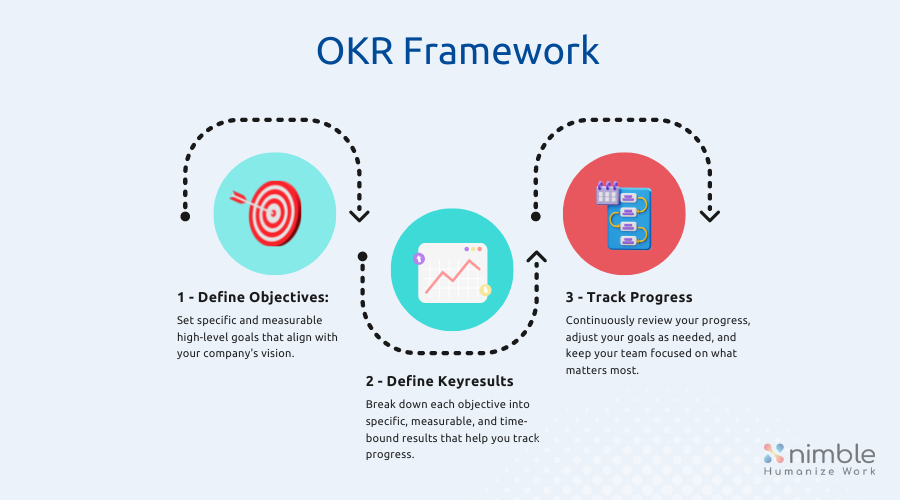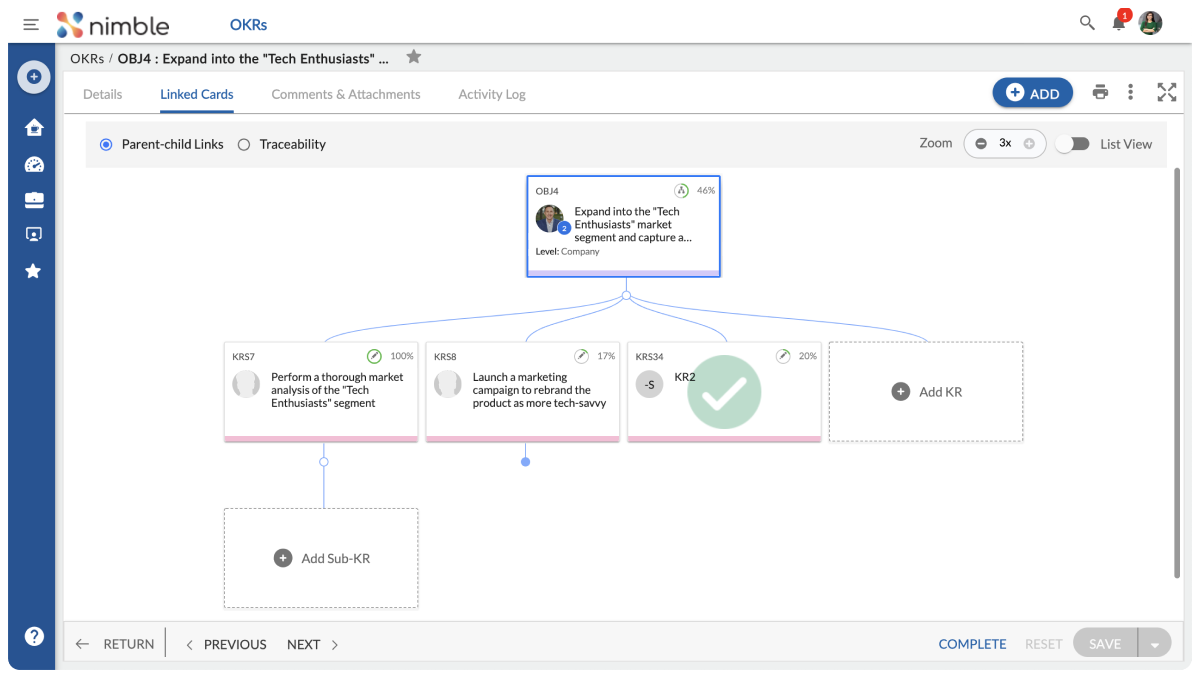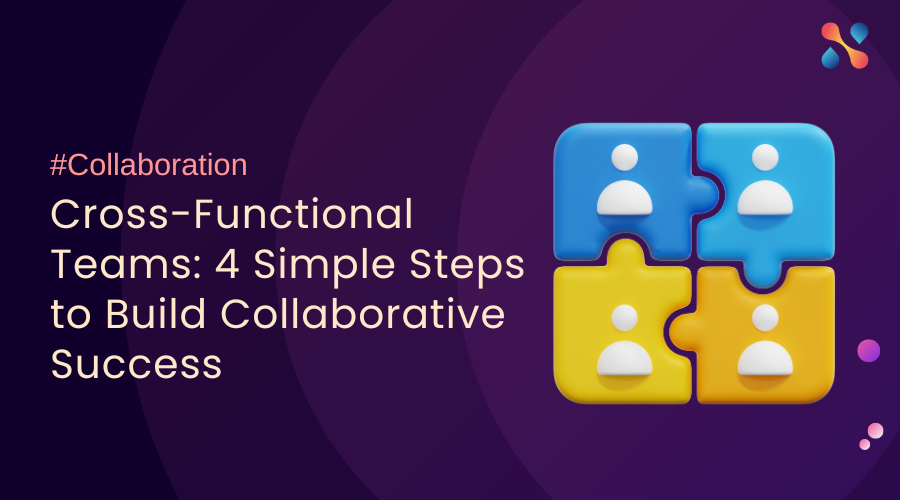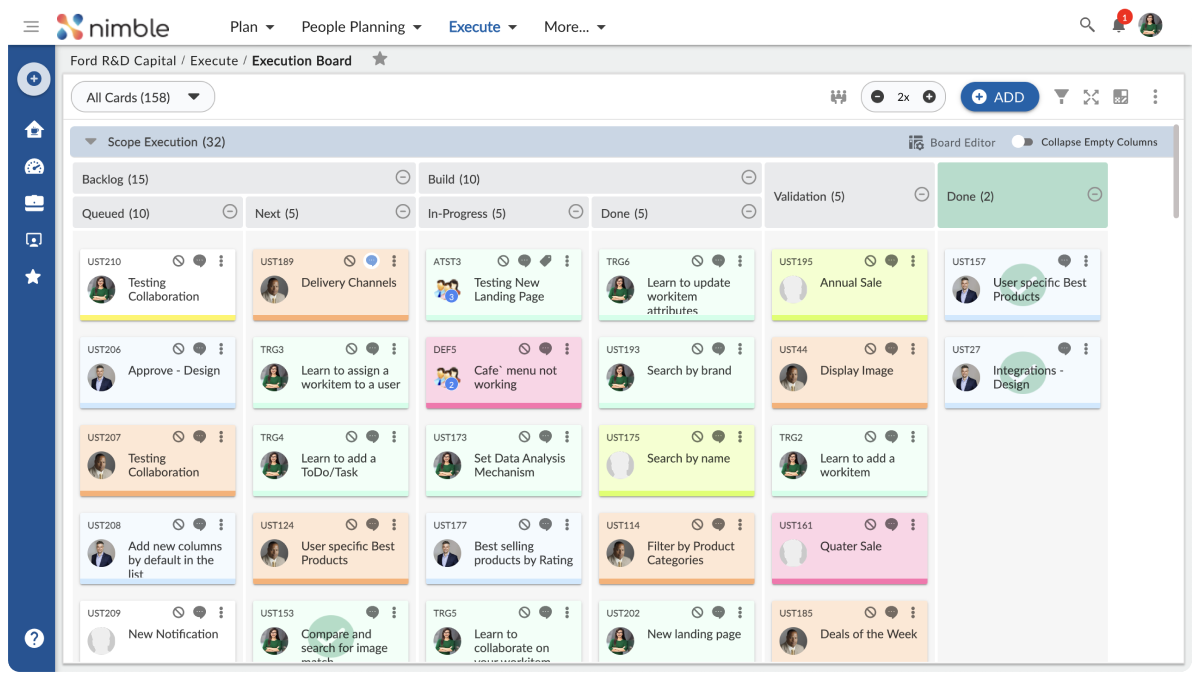Does your company struggle with setting objectives and keeping employees engaged and aligned? You are not alone. From the tiniest 3-person startup to the behemoth 20 thousand people enterprise, organizations of all sizes suffer with this challenge.
Lucky for them—and you—the OKR framework is of great help in this exact scenario. Many people, though, wonder whether OKRs work for startups, and why businesses, in general, use them.

Here’s a spoiler for the rest of the post: yes, OKRs do work for startups. Indeed, they not only work but are particularly suited to solve many of the typical pain points that early-stage companies suffer from.
Let’s dig in.
OKR Benefits: What Are They?
OKRs are far from a silver bullet—like any other methodology, technique, or process. But if you can implement it correctly, avoiding the main pitfalls, the OKR framework will yield many benefits for you.
Let’s review the main ones:
• Alignment. A good OKR implementation helps your whole organization to align towards the same objectives, making sure everyone’s on the same page and heading towards the same destination.
• Efficiency. If your organization is aligned towards the same objectives—which were deemed worthwhile to pursue—then it logically follows that you aren’t wasting time, energy, and money on the wrong goals.
• Employee Engagement. As an employee, it’s hard to feel motivated when you don’t know what the organization’s goals are and what it’s doing to achieve them (been there, done that.) The transparency and focus that OKRs bring to the table can be a great booster to employees’ trust in the organization, generating enthusiasm and engagement.
• Adaptability. One of the fundamentals of the OKR framework is that they should be malleable. You can and should change your objectives and key results when presented with evidence that the current ones are no longer relevant.
The Many Struggles of Startups
If you’ve ever been at a startup, either as an employee or as a founder, you know how it can be a tough life. Early-stage companies have to fight every day just to stay afloat, and they often struggle in many dimensions:
• Structure. When compared with established companies, startups lack structure but abound in chaos. Roles aren’t clearly defined, with employees and founders wearing multiple hats at once. Processes and policies aren’t well defined, with teams often winging it when facing new challenges.
• Money. Financial stress is certainly a predicament for many startups, particularly the bootstrapped ones or the ones who managed to secure limited funding.
• Unclear market fit. In very early stages, such as before even a beta release, startups might struggle to understand whether there is a market fit for their product or service.
• Management. Inexperienced management is a common problem in early-stage employees, often in the form of cofounders who have never managed a company.
The list above is by no means exhaustive. But to summarize, we can say that startups are volatile environments with lots of uncertainty and incredible potential for both upsides and downsides.
Well, they do say that a calm sea has never made a good sailor. But could OKRs help you tame the startup seas at least a little bit?

The OKR Benefits, Startups-Flavored
Earlier, we’ve covered some of the benefits that OKRs bring to the table. We’ll now revisit them, with a spin: you’ll see how each of them helps early-stage companies with their particular struggles.
Alignment
Some startups have a super sharp vision of what they want to achieve and how to get there. Many don’t. These latter ones often get paralyzed by the myriad of possible roads to take, or, even worse, spread their efforts into many different fronts, making progress in none of them.
The alignment and focus that OKRs bring are an antidote to that. When formulating your OKRs, you’re forced to stop and think hard on what are the real valuable objectives your business needs to achieve, and what are the key results that will prove you got there.
Efficiency
Startups are often under severe financial stress. Thus, waste is one of the capital sins they can’t afford to commit.
As such, efficiency is a more than welcome side effect of a proper implementation of the OKR framework. The focus and alignment OKRs bring to the table nudge everyone within the organization to focus their energy, time, and talent on what really matters, increasing efficiency and reducing waste.
Employee Engagement
If you’re a leader at a startup, you probably struggle with talent acquisition and retention. Having to compete with both more established companies and rival startups is definitely not a walk in the park.
You do what you can in the compensation and benefits department, juggling a gazillion of financial obstacles, but know that there is more to employee satisfaction and motivation than money.
As Daniel H. Pink’s been telling us for a while, the trifecta of what motivates people is composed of mastery, autonomy, and purpose. If employees know and understand the organization’s OKRs—or, better yet, participate in their elaboration—they will get a sense of purpose and meaning from their job, which will make engagement go up.
Adaptability
Last but not least, adaptability is a key pillar of OKRs, as you’ve seen before. And guess what? Adaptability is an amazing trump for a startup to have.
Startups live in this volatile, incredibly fast-paced world. They often have to change gears at a breakneck speed, due to challenges from competitors, updates to the legislation, economic upheavals, and more.
Having the ability to adapt and change fast isn’t a “nice-to-have” for early-stage companies: rather, it’s as vital as having great talent and a sound business plan.
Conclusion
OKRs aren’t a perfect solution for everything. But they can and do help organizations of all sizes that struggle with finding their true purpose and sticking to it, engaging their workforce, and being resilient in the face of change.
In this post, we’ve covered OKRs and their relationship with startups. Many people wonder whether ORKs apply to early-stage companies but, as we’ve seen, OKRs can be particularly helpful to these organizations, since their benefits map very nicely to the common hurdles faced by startups. Check out Nimble OKR! Nimble OKR empowers your team to set goals in unison, fostering alignment, ownership, and clarity. It’s more than a tool; it’s a pathway to achieving measurable outcomes, promoting accountability, transparency, and informed decision-making within your organization. Give it a try here!







